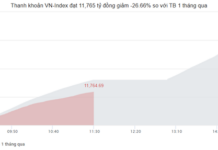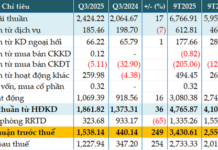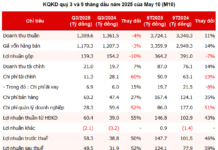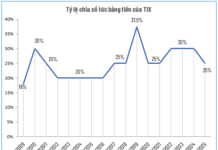As the world grapples with the worsening climate crisis, many countries have made commitments to reduce CO2 emissions, with some even aiming for Net Zero. To achieve these targets, countries are seeking ways to reduce their reliance on fossil fuels, prompting fossil fuel companies to explore new avenues.

Oil and gas companies are exploring investments in electric vehicles.
In the oil and gas industry, several companies have ventured into the electric vehicle sector as a new strategy in the era of green transportation. Notable investors include Shell, TotalEnergies, BP, and Eni, who have directed their focus towards electric vehicle charging stations, leveraging their existing expertise in fuel stations.
Most recently, Castrol, a lubricants company owned by BP, announced a significant investment in the electric vehicle battery space. Castrol committed to investing $50 million (approximately VND 1,252 billion) in Gogoro, a Taiwanese company specializing in electric vehicle battery swapping.
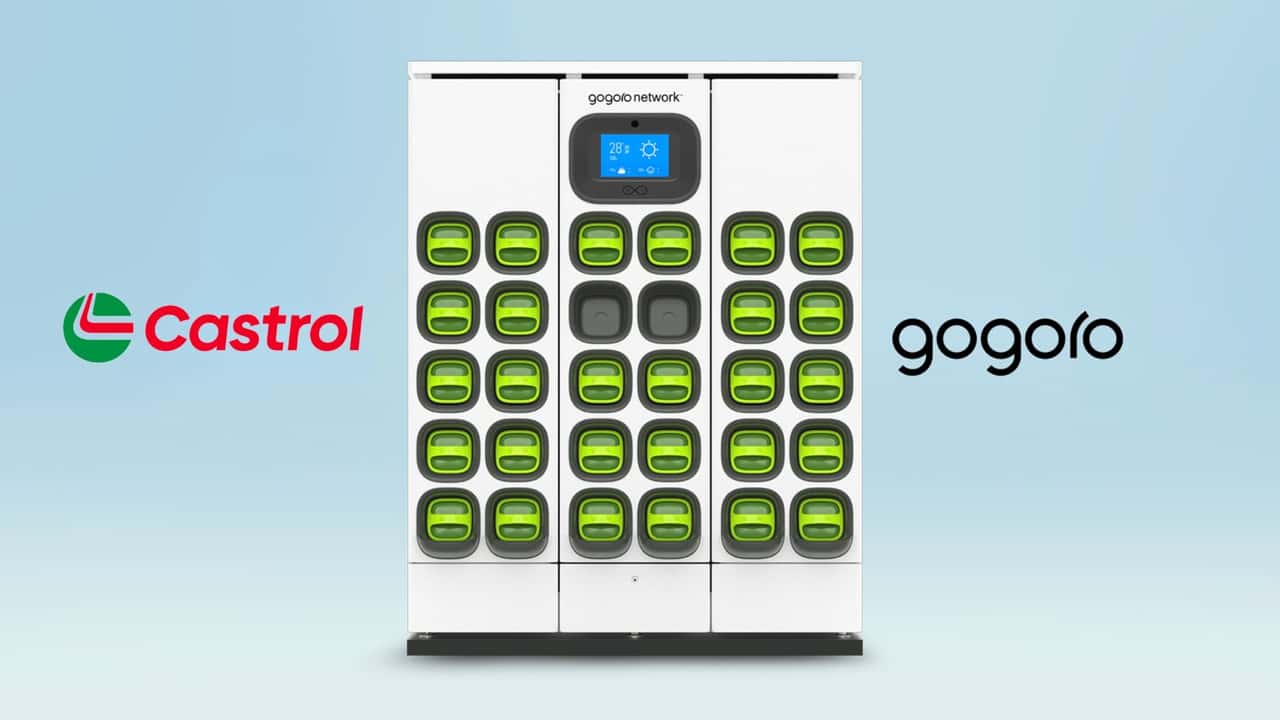
Castrol invests $50 million in Gogoro.
Gogoro is a pioneer in the electric motorcycle battery swapping industry, with a presence in multiple Asian countries and ongoing expansions into South America. They offer a unique battery-swapping model, allowing riders to exchange depleted batteries for fully charged ones at Gogoro stations, eliminating the lengthy charging process.
This battery-swapping approach addresses one of the critical weaknesses of electric vehicles—long charging times. It becomes even more advantageous when multiple vehicle brands can utilize the same battery technology. Gogoro has collaborated with prominent brands like Yamaha and Yadea, and their batteries are compatible with nearly 60 vehicle models.
With Castrol’s substantial investment, Gogoro is expected to expand its battery-swapping station network, enabling more users to experience the convenience of electric mobility.
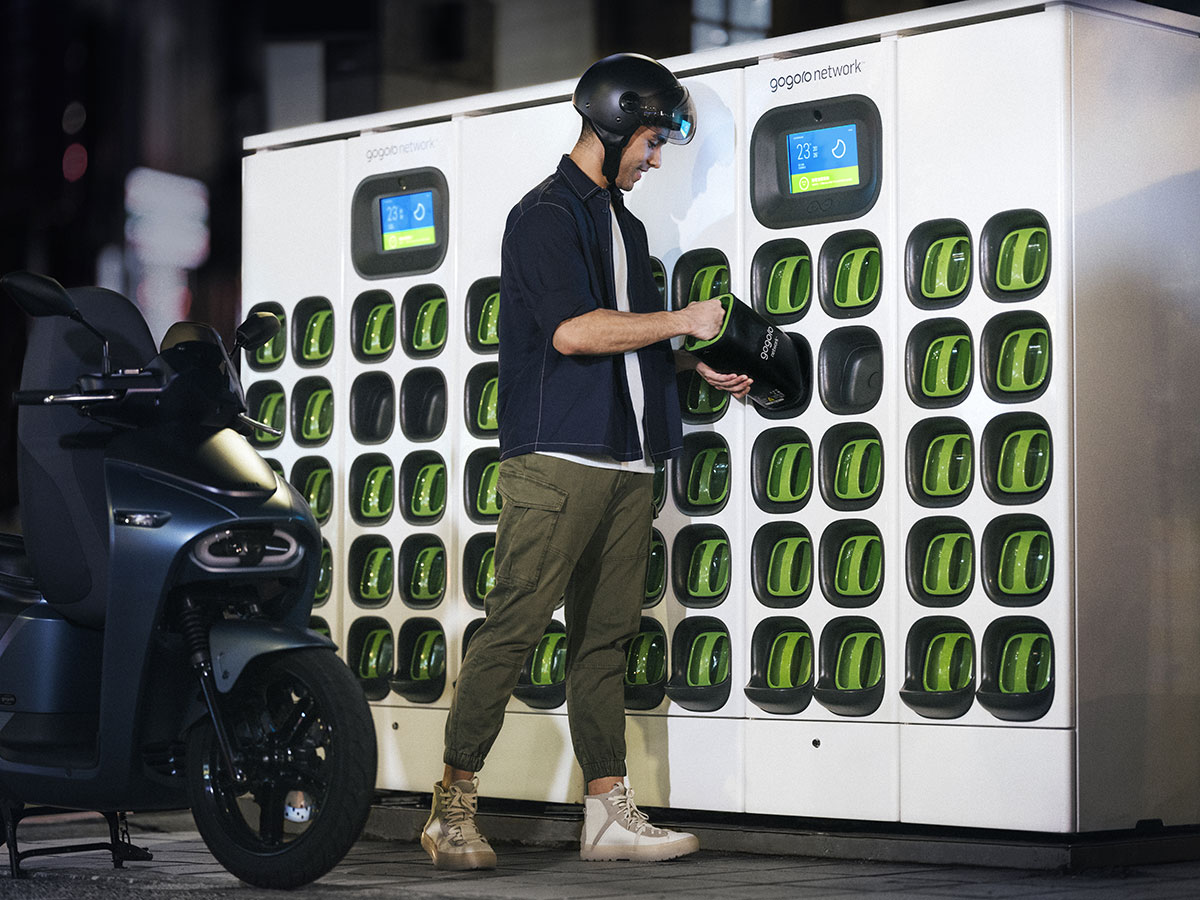
Gogoro’s battery-swapping station.
Similarly, a prominent oil and gas company in Vietnam, PV Power, is also venturing into the electric vehicle sector. They have constructed their first electric vehicle charging station as part of their business expansion strategy. This pilot station marks an important first step in PV Power’s journey towards potentially investing in a more extensive charging network.
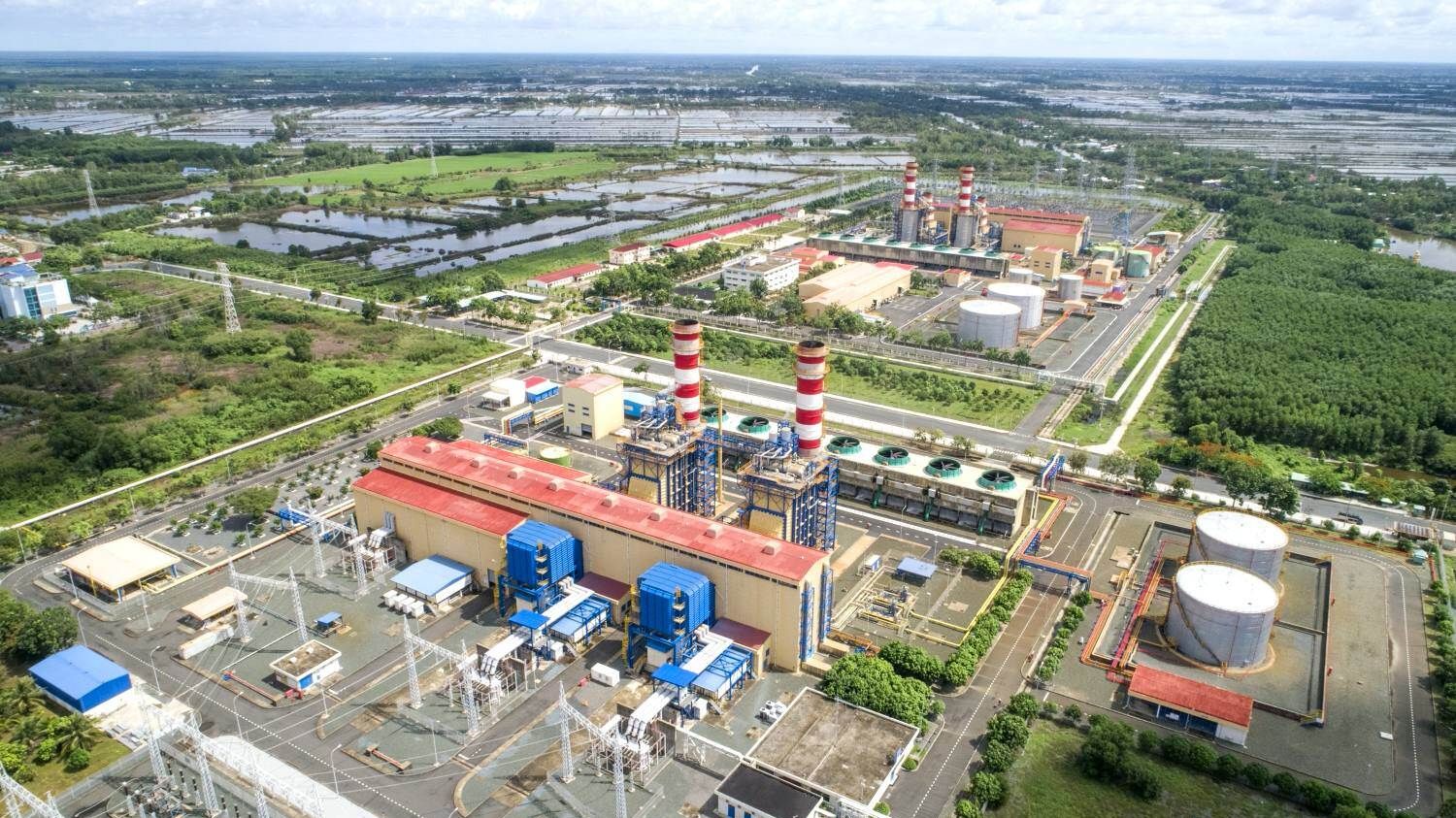
In addition to oil and gas, PV Power is involved in thermal power generation.
PV Power, in collaboration with EN Technologies, has now officially launched its first electric vehicle charging station in Hanoi, Vietnam. The station, located at 6 Huynh Thuc Khang, features two charging points, capable of serving two vehicles simultaneously. These are fast-charging stations with DC output, offering a power range of 50 kW to 60 kW per charging point. Users can conveniently pay for the charging service by scanning a QR code displayed on the station’s screen.
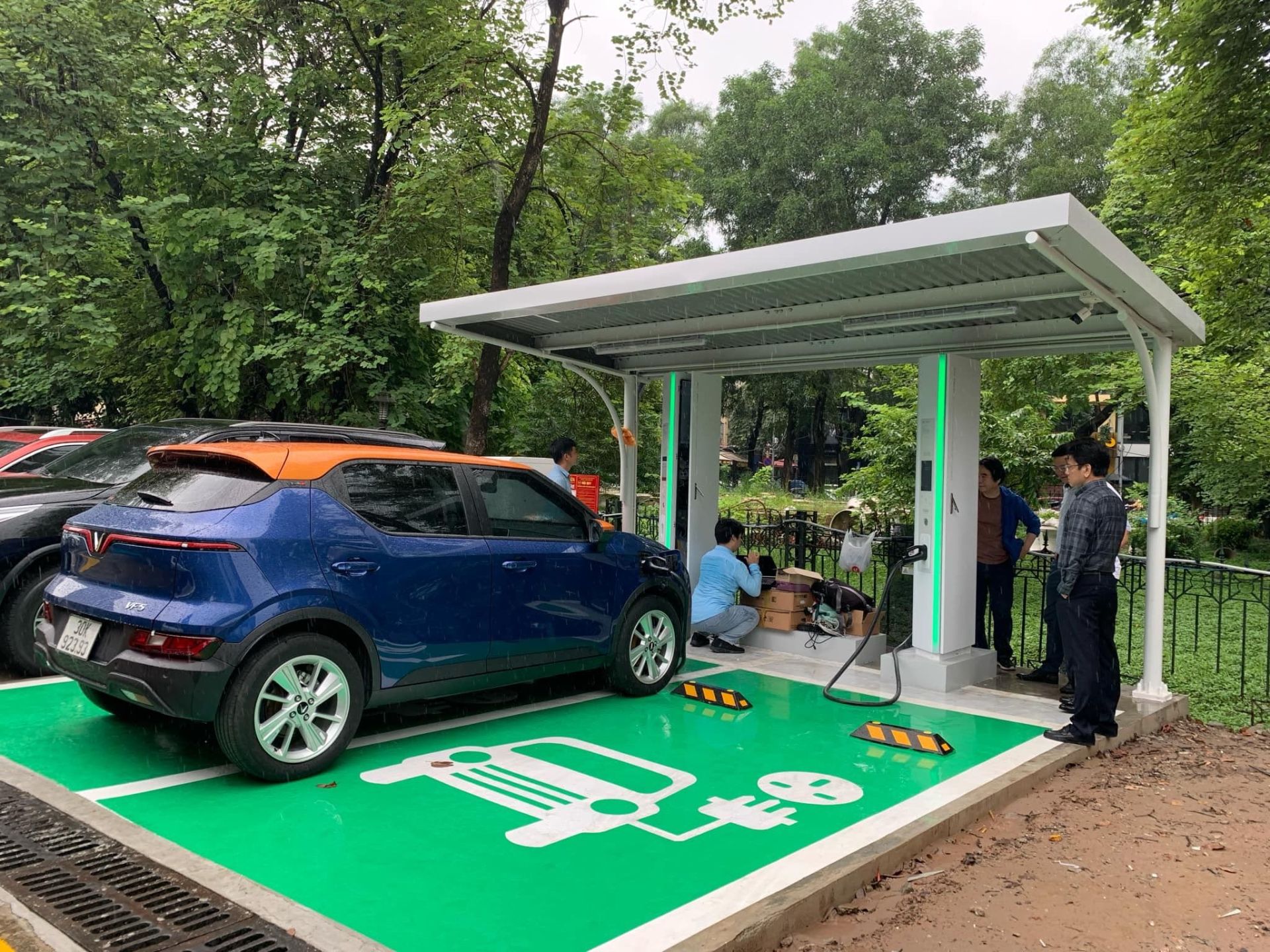
PV Power’s pilot charging station in Hanoi.
PV Power plans to implement a three-tier pricing structure based on peak, regular, and off-peak hours, with customer charges calculated accordingly. The average charging rate is expected to be VND 3,858 per kWh, which is comparable to V-GREEN’s rates but lower than EV One and EverCharge.
With this initial foray into electric vehicle charging, PV Power aims to gain a deeper understanding of the sector and potentially expand its operations further.
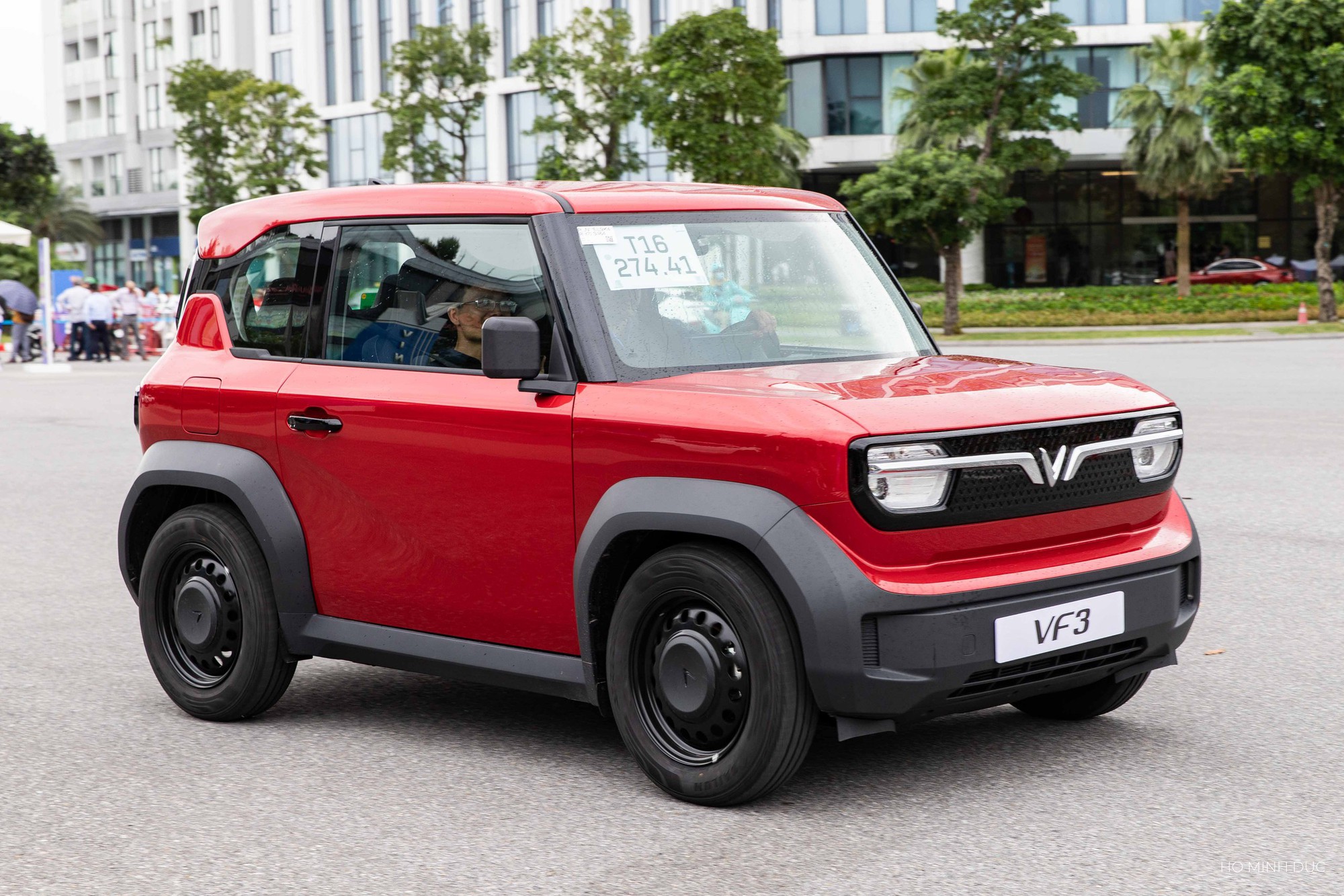
Largest taxi company in Nghệ An cancels car purchase contract with Toyota to switch to VinFast
Mr. Ho Chuong, CEO of Son Nam International Transport Co., has recently disclosed that he had previously signed contracts to purchase gasoline-powered vehicles from a Japanese car manufacturer. However, he has since diversified his investment portfolio by also venturing into VinFast electric vehicles, in order to embrace long-term and sustainable development.
Drivers only need to pay a deposit of over 2 million VND to buy Selex Motors electric motorcycles
Selex Motors has partnered with the United Nations Development Programme (UNDP) in two projects to provide smart financial support packages for drivers of delivery companies when purchasing the Selex Camel electric motorcycles in Hue and Ho Chi Minh City.

